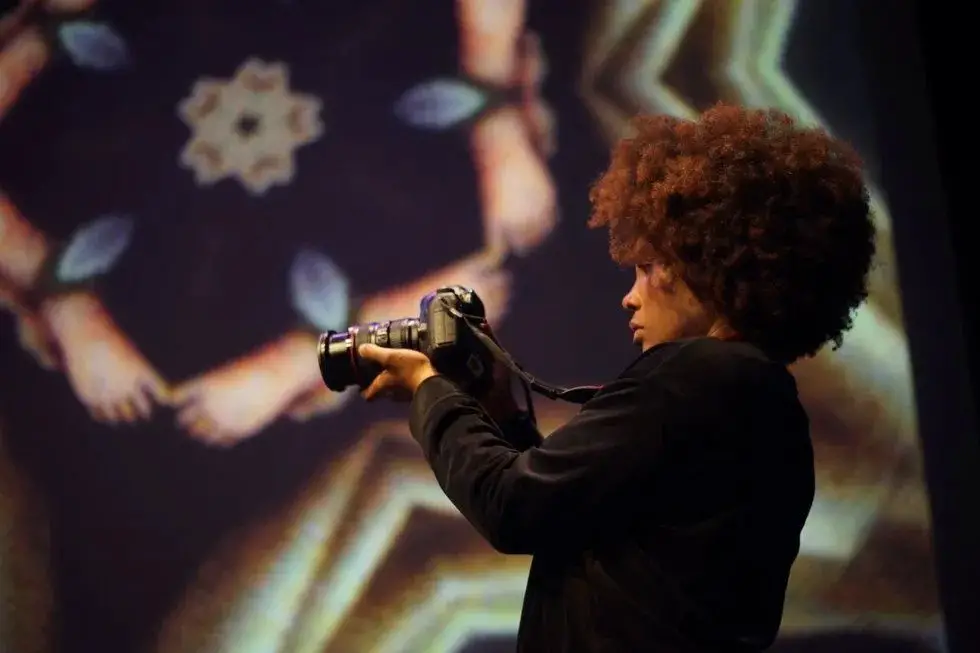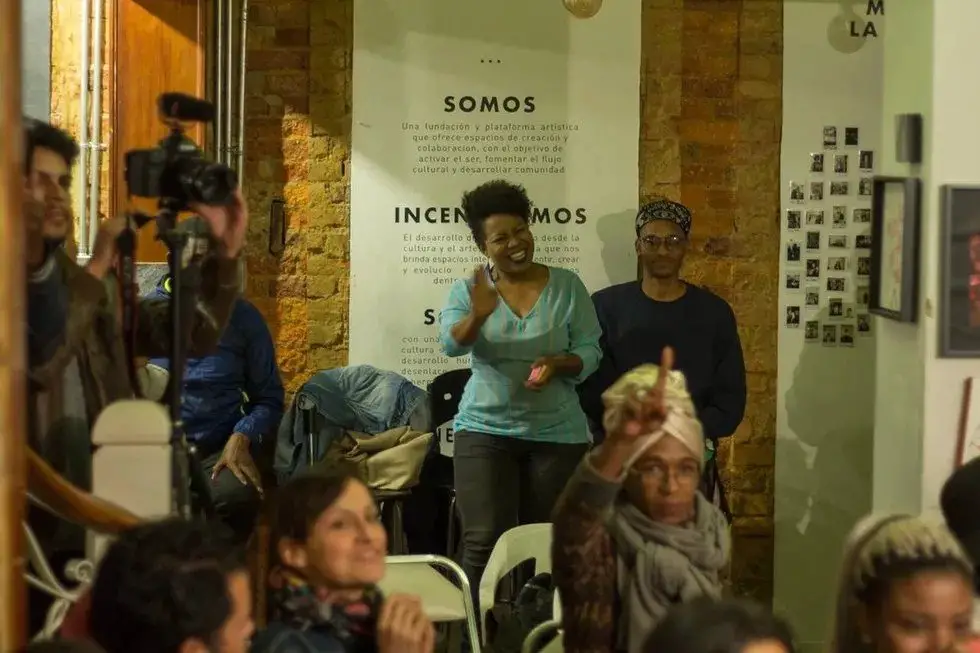Heny Cuesta is filmmaker, activist, and cultural agent who is pushing for more representation of Black creators in the movie industry with Cimarrón Productions.
The activist recalled when she first noticed this, an awkward panel in which she found that she was the only Black woman in a room full of ‘Mestizo’ directors at the International Film Festival in Cartagena de Indias (FICCI) in 2013.

She was shocked by what she saw.
She said, “None of the filmmakers were black, but they were talking about ethnic content despite the fact that they didn’t know the territory,” while the scene was a sad one, it did illustrate a worrying fact: Very few movies are being made by Black directors in Columbia. In fact, 2018 saw 37 feature films from Columbia and only one, –Candelaria– was directed by a black director.
The dearth of black creators in the movie industry is endemic in other sectors in Columbia and while Afro-Columbians make up about 20 percent of the total population, they see themselves receiving the short end of the stick.

Cuesta’s weird afternoon at the International Film Festival isn’t the only time she has found herself as the only black person in a room full of people. In college she was the only black woman out of 60 students. “That was my starting point to think about what happens when others are telling me who I am.”
On the back of these experiences, Cuesta started a film production company. Her aim was to create a safe space for the Afro-Columbian community to create. She started it with a classmate and like most grass to grace stories, things were really difficult at first.
“It was hard to convince my peers, because the project required money, resources, and none of us had a camera, nor stable jobs, or artistic or audiovisual background. However, that became a way to challenge ourselves to do what we could do with what we had.” Cuesta said recalling her roots.
The company was launched in 2013 with only a Canon T3 camera and $70. The team is currently made up of: Karen González, the co-founder; Zullay Riascos, an Afro-Bogotana filmmaker; as well as Maio Díaz and Laura Asprilla, two journalists.
With 5 years of existence and growth, Cimarrón Productions has now established itself as a safe haven for the Afro-Colombian community where training, panel discussions, organized movie screenings and workshops on identity, race and representation take place.
“This is the first Afro-Colombian film production company. There were film collectives in Cartagena, Popayán and in San Andrés, however this is the first one led by black women.” Cuesta said.
She continued, “For me, this became a movement when people began to recognize that they won’t find audiovisual content, but rather a way of social criticism. A way to strengthen identity processes. Film is an excuse to reach that,”
Cimarrón has done some impressive work, even partnering with various NGOs in a bid to change the narrative around Afro-Columbians and give them a platform to tell their stories.
Cimarrón has also teamed up with other collectives to better understand the plight of young people in the community and have found themselves in various territories. Cuesta explained it better “we have worked on how to narrate, respect and recognize the pain of others. It is not just coming to their location to shoot, but starting to feel what they’re living and [establishing] how we will work together.”
Cimarrón’s works have not been without recognition and in 2019, Heny Cuesta found herself in rarified air as one only Colombians invited to the Nobel Women’s Initiative in Monrovia, Liberia where the topic of Colombian social conflicts and how the narrative of Afro-Columbians can be changed through film.
The production company has worked with over 400 Afro-Colombian women, children and young people who with the help of the company are telling their stories. Cuesta elucidated this further when she said, “what we want to be is a voice, so that there won’t be others who narrate them, others who do not have the sensitivity to do so.”
They have certainly become a voice, one that is being heard everywhere.
Their latest project, a partnership with Skylight Pictures, a human rights organization, is geared towards the creation of the first Afro-Colombia arts lab to empower black leaders, filmmakers, artists and writers and give them the tools necessary to tell stories which revolve around their communities.
Read Also: Christine, A Painting By Ben Enwonwu Sold At Seven Times Its Valuation For $1.4 Million

The Urban Woman Magazine Editorial Team is made up of seasoned writers and editors who have a keen eye for detail and a passion for all things urban. We strive to create fresh, original content that appeals to the modern woman. Our mission is to provide a platform for women to share their stories, experiences and opinions on various issues affecting their lives.

